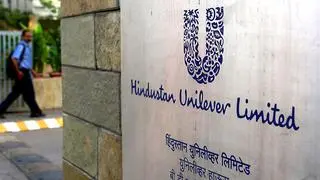Tata group is the only Indian business house featuring in global assurance company DNV GL’s ‘Future of Spaceship Earth’ report on The United Nations’ 17 Sustainable Development Goals (SDGs).
The report showcases 17 global companies that are driving extraordinary progress on each of the global goals. Among them, it highlights the Tata group's efforts to achieve the first sustainable development goal of eradicating poverty. Noting that the road to reaching these goals may be challenging, both in terms of time and environmental costs, the report concludes that many of the goals will make good progress across several world regions.
The report captures the Tata group’s approach towards poverty eradication in three ways: by producing affordable goods and services for the poor; creating employment opportunities, both within the companies and in the supply chain around them; and, finally, through involvement in communities beyond philanthropic activities toward more strategic efforts at creating value for the people.
“The SDGs present an unprecedented opportunity for business-led solutions to help address the world’s biggest social and environmental challenges. We are extremely happy to have collaborated with DNV GL in this report and look forward to partnering with different stakeholders to contribute to achieving the SDGs by 2030. Working across diverse business sectors gives the Tata group a unique breadth and robustness when it comes to providing employment opportunities and promoting social inclusion; one such initiative is the Tata Affirmative Action Programme (TAAP), a group initiative, launched in 2007, through which the group educates, employs and empowers the underprivileged sections of society, without sacrificing merit or quality,”said Mukund Rajan, Chairman, Tata Global Sustainability Council.
DNV GL launched a project to forecast the extent to which the SDGs would be achieved by 2030, including private sector solutions for attaining them. Based on their analysis and inputs from 17 global companies, all members of the UN Global Compact, the Future of Spaceship Earth report was unveiled during the United Nations’ Climate Week in New York in September 2016.
These companies featured are the Tata group, Danone, HiTechnologies, ARM, Symantec, Grundfos, SolarWorld, NYK, Hydro, Safaricom, Siemens, Marks & Spencer, Iberdrola, Cermaq, APP, Calvert Investments and Unilever. The report not only focuses on the forecast for reaching the SDGs, it also dives into private sector solutions for attaining them. The SDGs have become a blueprint for companies to reshape and future-fit their businesses.
“We know that the scale of the challenge is such that urgent, extraordinary actions are needed. For the most part, businesses have the technology, people and processes to address the goals. We do not necessarily lack solutions, but ability to scale these interventions. DNV GL’s Spaceship Earth report reveals that not even half of the goals will be met in any of the regions at the current pace. Therefore, we must launch into an extraordinary collective effort together to reach the SDGs; the question being ‘What can businesses do to lead the charge? Through the report, we wanted to demonstrate how businesses are responding but also educate, inspire and encourage rapid learning and action,” Luca Crisciotti, Chief Executive Officer, Business Assurance, DNV GL said.







Comments
Comments have to be in English, and in full sentences. They cannot be abusive or personal. Please abide by our community guidelines for posting your comments.
We have migrated to a new commenting platform. If you are already a registered user of TheHindu Businessline and logged in, you may continue to engage with our articles. If you do not have an account please register and login to post comments. Users can access their older comments by logging into their accounts on Vuukle.